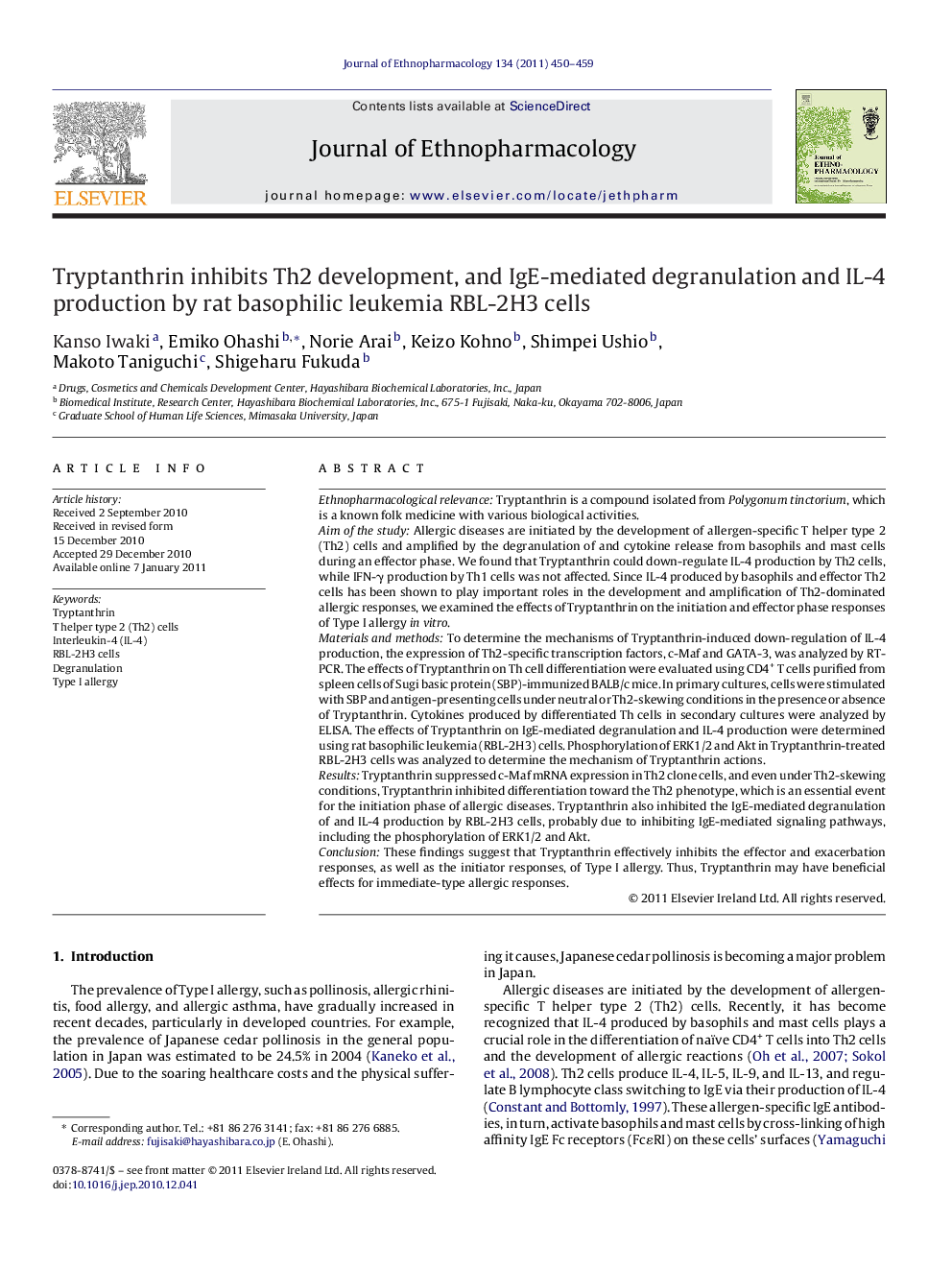| کد مقاله | کد نشریه | سال انتشار | مقاله انگلیسی | نسخه تمام متن |
|---|---|---|---|---|
| 5839577 | 1123994 | 2011 | 10 صفحه PDF | دانلود رایگان |

Ethnopharmacological relevanceTryptanthrin is a compound isolated from Polygonum tinctorium, which is a known folk medicine with various biological activities.Aim of the studyAllergic diseases are initiated by the development of allergen-specific T helper type 2 (Th2) cells and amplified by the degranulation of and cytokine release from basophils and mast cells during an effector phase. We found that Tryptanthrin could down-regulate IL-4 production by Th2 cells, while IFN-γ production by Th1 cells was not affected. Since IL-4 produced by basophils and effector Th2 cells has been shown to play important roles in the development and amplification of Th2-dominated allergic responses, we examined the effects of Tryptanthrin on the initiation and effector phase responses of Type I allergy in vitro.Materials and methodsTo determine the mechanisms of Tryptanthrin-induced down-regulation of IL-4 production, the expression of Th2-specific transcription factors, c-Maf and GATA-3, was analyzed by RT-PCR. The effects of Tryptanthrin on Th cell differentiation were evaluated using CD4+ T cells purified from spleen cells of Sugi basic protein (SBP)-immunized BALB/c mice. In primary cultures, cells were stimulated with SBP and antigen-presenting cells under neutral or Th2-skewing conditions in the presence or absence of Tryptanthrin. Cytokines produced by differentiated Th cells in secondary cultures were analyzed by ELISA. The effects of Tryptanthrin on IgE-mediated degranulation and IL-4 production were determined using rat basophilic leukemia (RBL-2H3) cells. Phosphorylation of ERK1/2 and Akt in Tryptanthrin-treated RBL-2H3 cells was analyzed to determine the mechanism of Tryptanthrin actions.ResultsTryptanthrin suppressed c-Maf mRNA expression in Th2 clone cells, and even under Th2-skewing conditions, Tryptanthrin inhibited differentiation toward the Th2 phenotype, which is an essential event for the initiation phase of allergic diseases. Tryptanthrin also inhibited the IgE-mediated degranulation of and IL-4 production by RBL-2H3 cells, probably due to inhibiting IgE-mediated signaling pathways, including the phosphorylation of ERK1/2 and Akt.ConclusionThese findings suggest that Tryptanthrin effectively inhibits the effector and exacerbation responses, as well as the initiator responses, of Type I allergy. Thus, Tryptanthrin may have beneficial effects for immediate-type allergic responses.
Results of our study suggest that Tryptanthrin effectively inhibits the effector and exacerbation responses, as well as the initiating responses, of Type I allergy.246
Journal: Journal of Ethnopharmacology - Volume 134, Issue 2, 24 March 2011, Pages 450-459